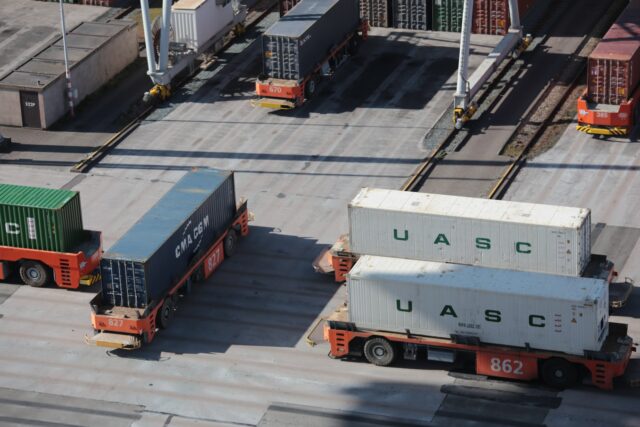
Online retail is all the rage these days. One glance at the numbers, and it’s easy to see why; e-commerce continues to take an ever-increasing piece of the overall retail pie. It won’t be long before the vast majority of consumer products are bought and sold online. In fact, it’s a shock that’s not already the case.
The result is a world where countless entrepreneurs see e-commerce as the path to profitability. While it’s certainly the future of retail, e-commerce is not without its risks. What’s more, online retail has its share of hurdles to clear before it becomes profitable. The primary obstacle is always the same: cost-prohibitive shipping.
In order for e-commerce to be profitable, shipping costs must be brought under control. Moreover, they need to be competitive in a world where consumers can easily switch to established giants like Alibaba and Amazon.
The good news is there’s a solution. It’s called third-party logistics, commonly referred to as 3PL solutions. These services provide a practical and cost-effective way for smaller online retailers to get their shipping and handling costs within an acceptable range. But that’s only the beginning.
Let’s take a look at six reasons for online retailers to rely on 3PL providers:
Lower costs
The signature benefit of using 3PL services is the potential for significant cost savings. This is primarily achieved by taking advantage of sophisticated software built using next-gen algorithms. It all adds up to smaller online retailers getting access to the information and resources they need to secure competitive pricing through carriers.
Greater insights
Knowledge is power. The problem for newly minted online retailers is they tend to lack the insights and experience required to accurately assess the dynamics that dominate the world of shipping logistics. The good news is they can acquire that knowledge with the help of a third-party logistics service. Once armed with this information, e-commerce outfits can approach the situation with greater confidence courtesy of the well of knowledge they now possess.
Reduced disruption
The last two years have demonstrated the power of disruption in terms of its destructive potential for small businesses trying to survive. With supply chain issues still in play, it’s imperative for online retailers to take advantage of the stability offered by partnering with a 3PL service. Doing so limits the risk presented by current events and their tendency to unfold at the least convenient times.
Small parcel negotiation
Small parcels with limited weight destined for individuals make up a significant portion of the global volume of shipments at any given time. Unfortunately, they tend to also be the most expensive when adjusted for weight and value. It comes down to scale; the more specialized and relatively insignificant the shipping order, the more it costs to fulfill. But thanks to 3PL services, online retailers have sharper teeth when it comes to small parcel negotiations with major carriers. When multiplied by the thousand, it’s easy to see how partnering with 3PL providers leads to more affordable shipping.
Improved scalability
Another major revelation brought to the forefront, thanks to current events, is the importance of scalability in business. Online retailers are increasingly forced to alter their operations to match demand. Thanks to 3PL providers, e-commerce companies don’t have to worry about shipping when deciding the best path towards scaling up or down. That burden falls on the 3PL provider, who, if they’re worth their weight in salt, will have such circumstances built into their existing operation.
Satisfied customers
Consistency in pricing, product availability, and shipping leads to happy customers. Happy customers are more likely to become repeat customers. With this in mind, the consistency offered by 3PLs leads to a greater chance of securing recurring business going forward. Who doesn’t want satisfied customers?
E-commerce is the way of the future. While there will always be demand for traditional shopping in brick-and-mortar settings, it’s safe to say the majority of retail purchases will eventually be online. With this in mind, it’s essential for online retailers to work towards providing the best prices possible for the products they sell. And that, ultimately, comes down to the prices they can negotiate in regard to shipping.
Julie Steinbeck is a freelance writer from Florida. She enjoys writing about business, finance, health, and travel.













